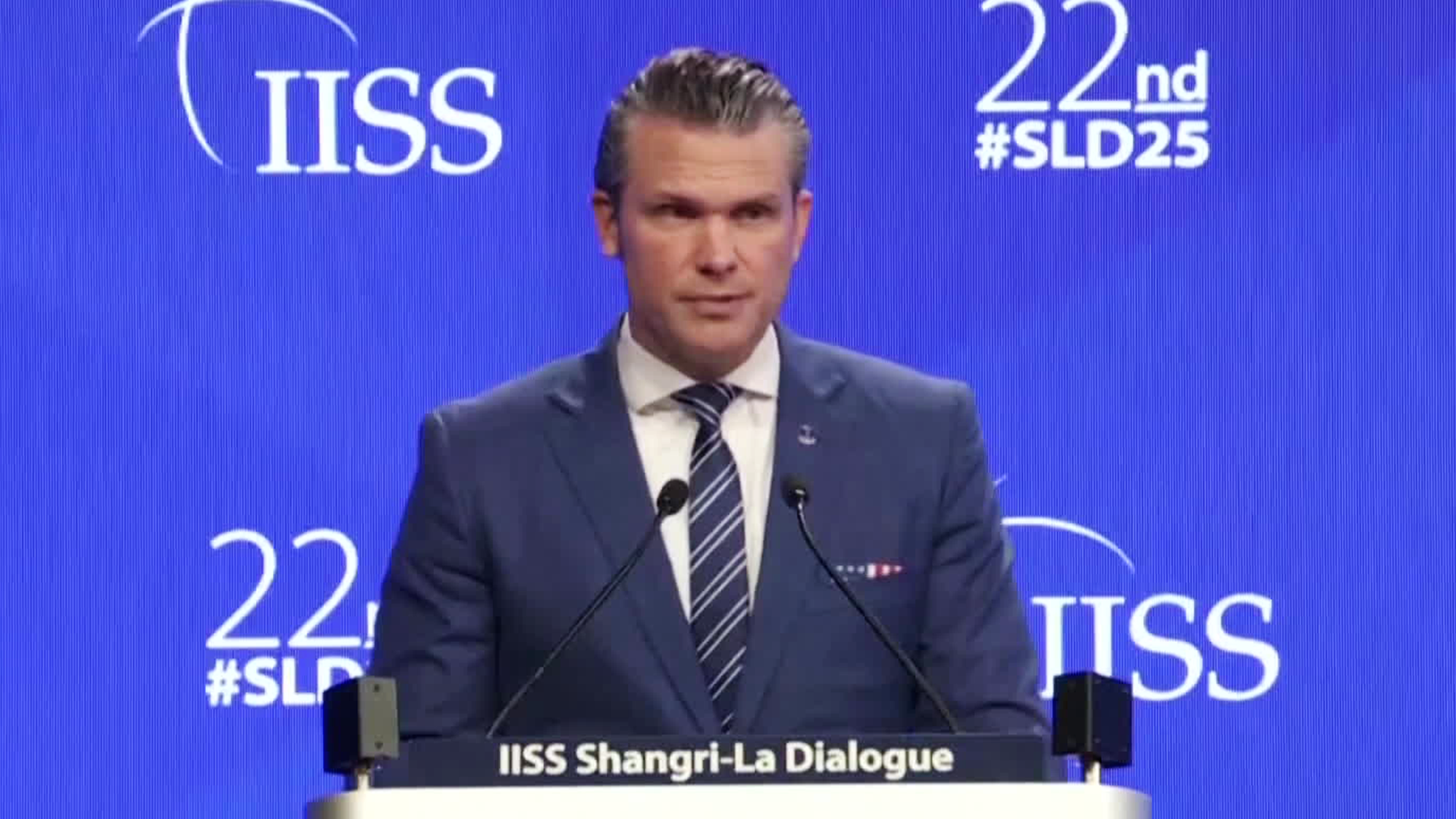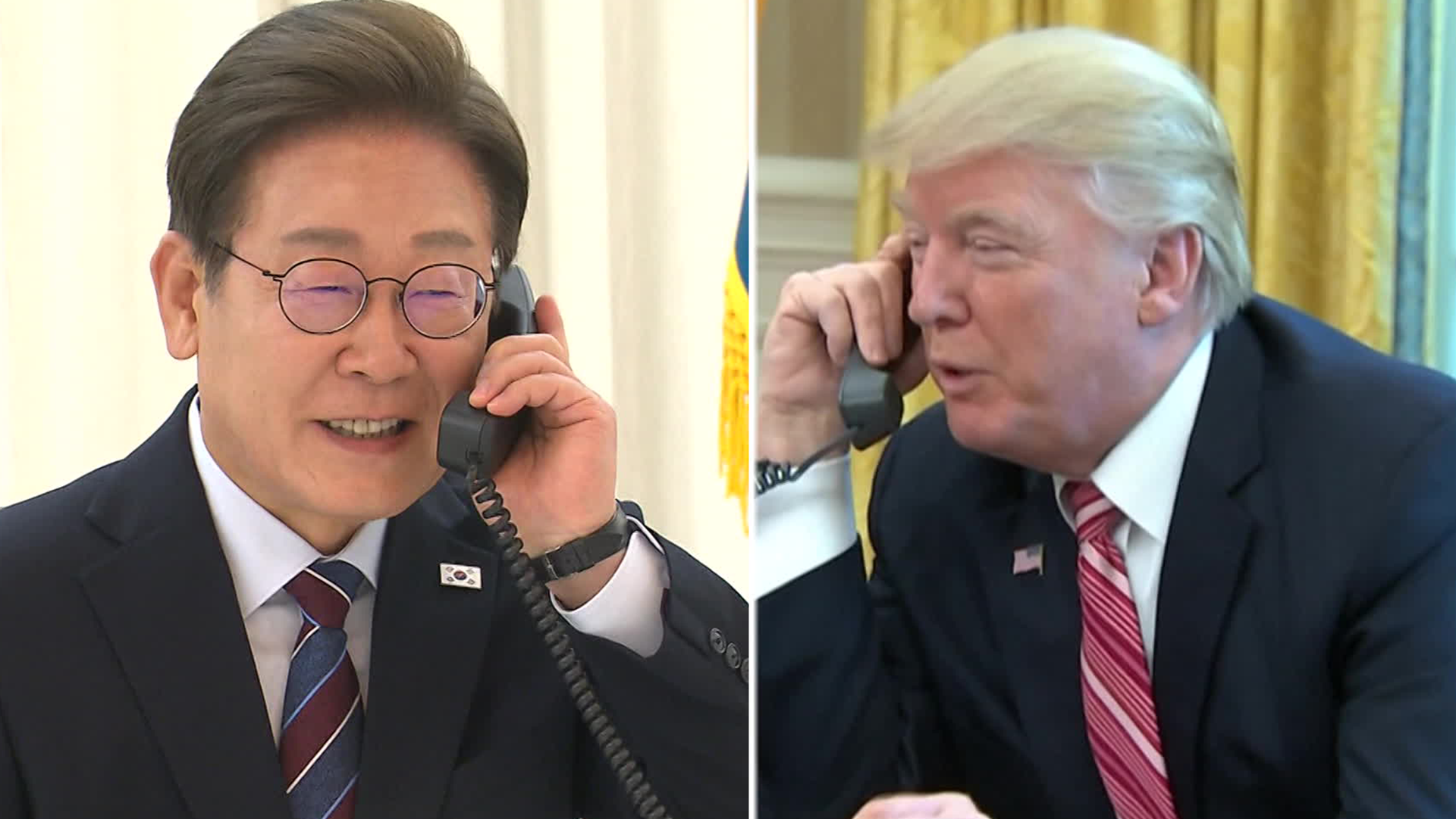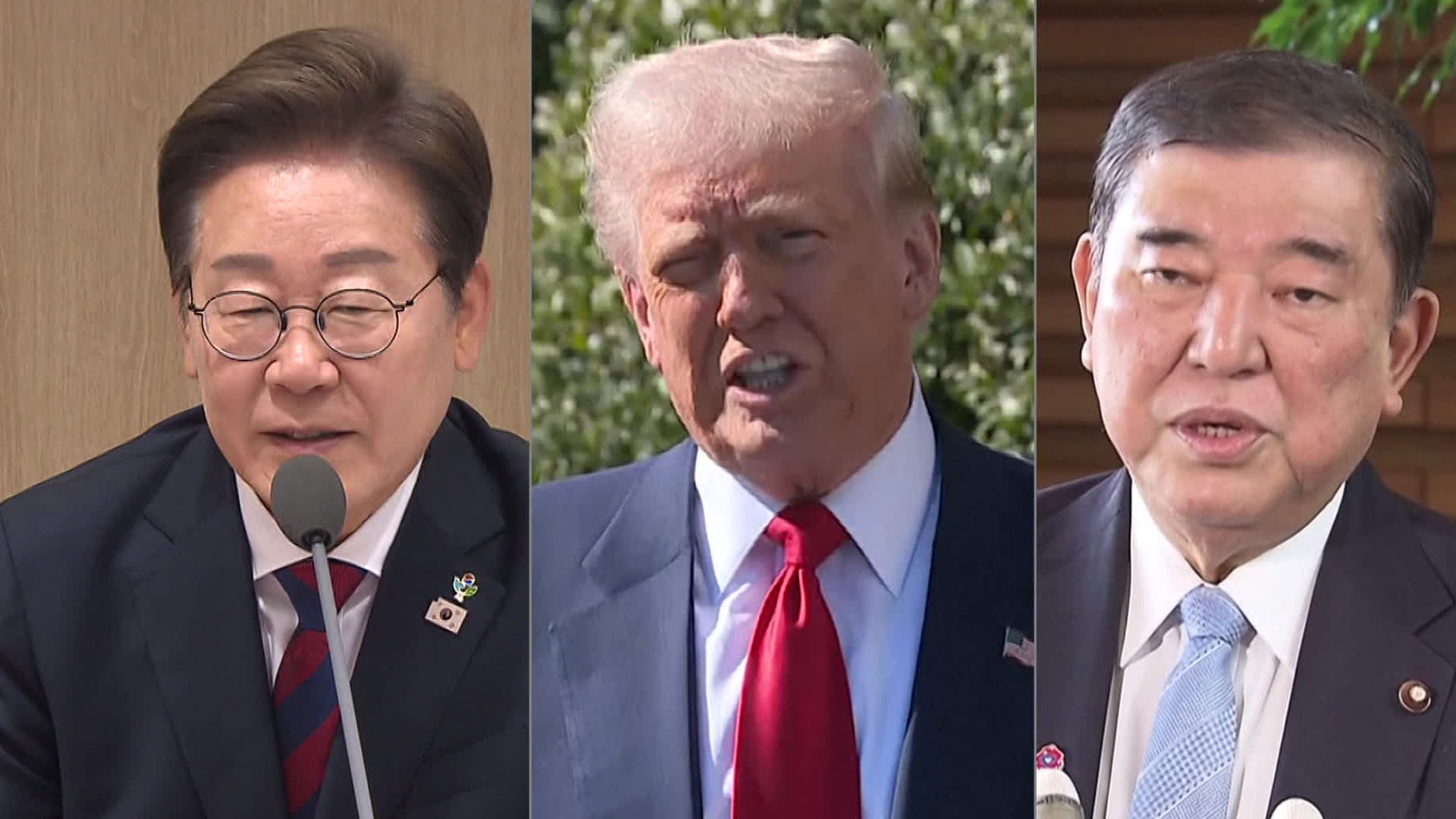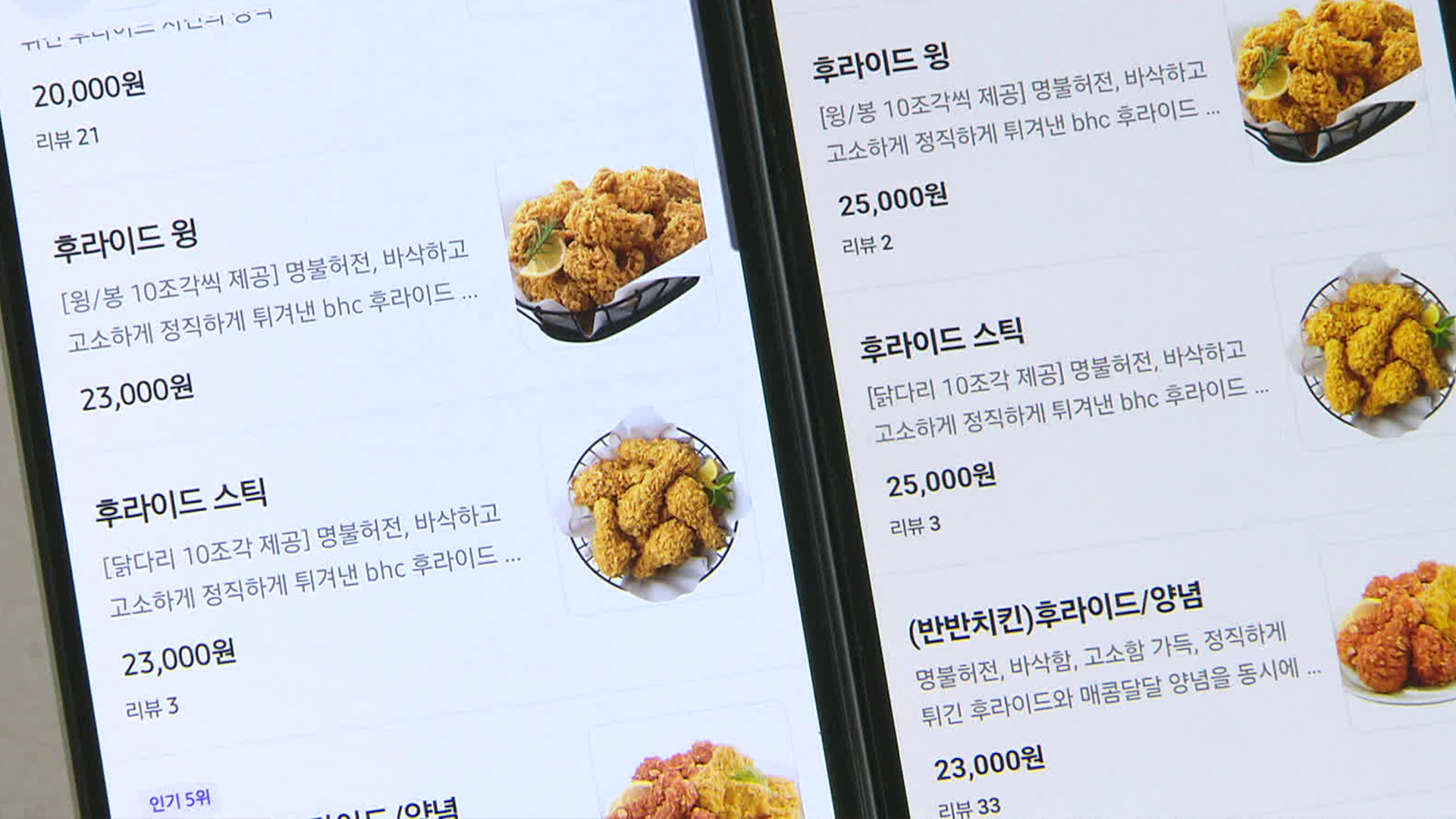U.S. urges defense spending increase
입력 2025.06.01 (03:47)
읽어주기 기능은 크롬기반의
브라우저에서만 사용하실 수 있습니다.
[Anchor]
The U.S. Secretary of Defense has issued a serious warning to Asian allies.
He stated that a Chinese invasion of Taiwan is an imminent reality and urged them to increase their defense spending.
Although he did not directly mention South Korea, reporter Kim Kyung-jin examined what kind of invoice might be presented in connection with the ongoing negotiations over the U.S.-South Korea defense cost-sharing.
[Report]
U.S. Secretary of Defense Pete Hegseth, attending a defense forum in the Asia-Pacific region.
He mentioned that Chinese President Xi Jinping has ordered preparations for an invasion of Taiwan by 2027, stating that the threat from China is real and immediate.
[Pete Hegseth/U.S. Secretary of Defense: "The PLA is building the military needed to do it, training for it every day, and rehearsing for the real deal."]
He demanded an increase in defense spending from Asian allies.
Specifically, he cited NATO as an example, mentioning a level of around 5% of GDP, marking the first time the U.S. has presented such standards to its Asian allies.
[Pete Hegseth/U.S. Secretary of Defense: "So it doesn't make sense for countries in Europe to do that, while key allies in Asia spend less on defense, in the face of an even more formidable threat, not to mention North Korea."]
This year, South Korea's defense budget is expected to be around 61.6 trillion won, approximately 2.3% of GDP, raising concerns that pressure from the U.S. regarding security cost-sharing may intensify more than anticipated.
Secretary Hegseth also stated that many countries are tempted to cooperate with the U.S. for security and with China for economic reasons, which only deepens China's harmful influence.
He issued a warning regarding the so-called 'U.S. for defense and China for economy' attitude of the allies.
[Lee Joong-koo/Research Fellow, Korea Institute for Defense Analyses: "In the context of the U.S.-China competition, where economic dependence on China is inevitable, this can be seen as a message demanding that allies more clearly stand on the side of the U.S."]
For the new government, which must set an appropriate position between the conflicting U.S. and China, the dilemma is likely to deepen.
KBS News, Kim Kyung-jin.
The U.S. Secretary of Defense has issued a serious warning to Asian allies.
He stated that a Chinese invasion of Taiwan is an imminent reality and urged them to increase their defense spending.
Although he did not directly mention South Korea, reporter Kim Kyung-jin examined what kind of invoice might be presented in connection with the ongoing negotiations over the U.S.-South Korea defense cost-sharing.
[Report]
U.S. Secretary of Defense Pete Hegseth, attending a defense forum in the Asia-Pacific region.
He mentioned that Chinese President Xi Jinping has ordered preparations for an invasion of Taiwan by 2027, stating that the threat from China is real and immediate.
[Pete Hegseth/U.S. Secretary of Defense: "The PLA is building the military needed to do it, training for it every day, and rehearsing for the real deal."]
He demanded an increase in defense spending from Asian allies.
Specifically, he cited NATO as an example, mentioning a level of around 5% of GDP, marking the first time the U.S. has presented such standards to its Asian allies.
[Pete Hegseth/U.S. Secretary of Defense: "So it doesn't make sense for countries in Europe to do that, while key allies in Asia spend less on defense, in the face of an even more formidable threat, not to mention North Korea."]
This year, South Korea's defense budget is expected to be around 61.6 trillion won, approximately 2.3% of GDP, raising concerns that pressure from the U.S. regarding security cost-sharing may intensify more than anticipated.
Secretary Hegseth also stated that many countries are tempted to cooperate with the U.S. for security and with China for economic reasons, which only deepens China's harmful influence.
He issued a warning regarding the so-called 'U.S. for defense and China for economy' attitude of the allies.
[Lee Joong-koo/Research Fellow, Korea Institute for Defense Analyses: "In the context of the U.S.-China competition, where economic dependence on China is inevitable, this can be seen as a message demanding that allies more clearly stand on the side of the U.S."]
For the new government, which must set an appropriate position between the conflicting U.S. and China, the dilemma is likely to deepen.
KBS News, Kim Kyung-jin.
■ 제보하기
▷ 카카오톡 : 'KBS제보' 검색, 채널 추가
▷ 전화 : 02-781-1234, 4444
▷ 이메일 : kbs1234@kbs.co.kr
▷ 유튜브, 네이버, 카카오에서도 KBS뉴스를 구독해주세요!
- U.S. urges defense spending increase
-
- 입력 2025-06-01 03:47:41

[Anchor]
The U.S. Secretary of Defense has issued a serious warning to Asian allies.
He stated that a Chinese invasion of Taiwan is an imminent reality and urged them to increase their defense spending.
Although he did not directly mention South Korea, reporter Kim Kyung-jin examined what kind of invoice might be presented in connection with the ongoing negotiations over the U.S.-South Korea defense cost-sharing.
[Report]
U.S. Secretary of Defense Pete Hegseth, attending a defense forum in the Asia-Pacific region.
He mentioned that Chinese President Xi Jinping has ordered preparations for an invasion of Taiwan by 2027, stating that the threat from China is real and immediate.
[Pete Hegseth/U.S. Secretary of Defense: "The PLA is building the military needed to do it, training for it every day, and rehearsing for the real deal."]
He demanded an increase in defense spending from Asian allies.
Specifically, he cited NATO as an example, mentioning a level of around 5% of GDP, marking the first time the U.S. has presented such standards to its Asian allies.
[Pete Hegseth/U.S. Secretary of Defense: "So it doesn't make sense for countries in Europe to do that, while key allies in Asia spend less on defense, in the face of an even more formidable threat, not to mention North Korea."]
This year, South Korea's defense budget is expected to be around 61.6 trillion won, approximately 2.3% of GDP, raising concerns that pressure from the U.S. regarding security cost-sharing may intensify more than anticipated.
Secretary Hegseth also stated that many countries are tempted to cooperate with the U.S. for security and with China for economic reasons, which only deepens China's harmful influence.
He issued a warning regarding the so-called 'U.S. for defense and China for economy' attitude of the allies.
[Lee Joong-koo/Research Fellow, Korea Institute for Defense Analyses: "In the context of the U.S.-China competition, where economic dependence on China is inevitable, this can be seen as a message demanding that allies more clearly stand on the side of the U.S."]
For the new government, which must set an appropriate position between the conflicting U.S. and China, the dilemma is likely to deepen.
KBS News, Kim Kyung-jin.
The U.S. Secretary of Defense has issued a serious warning to Asian allies.
He stated that a Chinese invasion of Taiwan is an imminent reality and urged them to increase their defense spending.
Although he did not directly mention South Korea, reporter Kim Kyung-jin examined what kind of invoice might be presented in connection with the ongoing negotiations over the U.S.-South Korea defense cost-sharing.
[Report]
U.S. Secretary of Defense Pete Hegseth, attending a defense forum in the Asia-Pacific region.
He mentioned that Chinese President Xi Jinping has ordered preparations for an invasion of Taiwan by 2027, stating that the threat from China is real and immediate.
[Pete Hegseth/U.S. Secretary of Defense: "The PLA is building the military needed to do it, training for it every day, and rehearsing for the real deal."]
He demanded an increase in defense spending from Asian allies.
Specifically, he cited NATO as an example, mentioning a level of around 5% of GDP, marking the first time the U.S. has presented such standards to its Asian allies.
[Pete Hegseth/U.S. Secretary of Defense: "So it doesn't make sense for countries in Europe to do that, while key allies in Asia spend less on defense, in the face of an even more formidable threat, not to mention North Korea."]
This year, South Korea's defense budget is expected to be around 61.6 trillion won, approximately 2.3% of GDP, raising concerns that pressure from the U.S. regarding security cost-sharing may intensify more than anticipated.
Secretary Hegseth also stated that many countries are tempted to cooperate with the U.S. for security and with China for economic reasons, which only deepens China's harmful influence.
He issued a warning regarding the so-called 'U.S. for defense and China for economy' attitude of the allies.
[Lee Joong-koo/Research Fellow, Korea Institute for Defense Analyses: "In the context of the U.S.-China competition, where economic dependence on China is inevitable, this can be seen as a message demanding that allies more clearly stand on the side of the U.S."]
For the new government, which must set an appropriate position between the conflicting U.S. and China, the dilemma is likely to deepen.
KBS News, Kim Kyung-jin.
-
-

김경진 기자 kjkim@kbs.co.kr
김경진 기자의 기사 모음
-
이 기사가 좋으셨다면
-
좋아요
0
-
응원해요
0
-
후속 원해요
0















이 기사에 대한 의견을 남겨주세요.